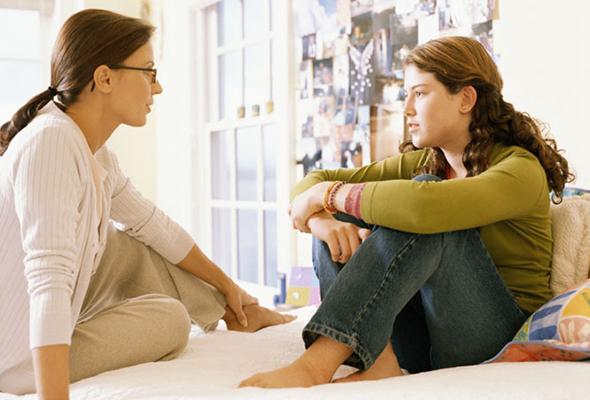The objective of this article is to acquaint parents with some possible resources for drug education and some tips as to how to react when youngsters are using drugs.
By: Susan Adams, M. Ed.
Summary: Communication with youngsters needs to remain open and friendly even when drug use is suspected.
There are a number of avenues toward education about drugs available to the public. This article addresses some of these. In addition, if drug abuse is suspected, treatment must be sought and possible hospital confinement initiated if the problem cannot be controlled on an outpatient basis.
Communication between parents and children should include friendly, open discussions about the prevalence of drugs, their effects, and the problems that they cause. Accept calmly the information your children may have heard about these things in their school or neighborhood. Though it may seem difficult, when discussing this subject or any other related to children, it is paramount to keep the conversation of low intensity. Conversations and exchanges of information can only occur in calm. Talk facts, stay believable and non-dramatic, really listen to what your kids are saying. One purpose here is to give your youngsters the ammunition--the facts and emotional support--to resist peer pressure.
If you do find out that your son or daughter is smoking marijuana, or using other drugs, either by asking a direct question or be seeing the signs, please do not attack him or her for it. Don't argue, lecture, or try to frighten. If you ask the right questions and believe that the answers that you get are not truthful, there are in-home drug kits available at your local pharmacy and you can purchase one for about $30.00 and perform a drug test on the spot. Marijuana stays in the system thirty days or more. Cocaine and the other drugs, far less long. It is important if using a drug test, to do so without warning.
Discuss realistically the possible results of drug use such as getting arrested or developing psychological dependence on the substance. Rebut calmly the explanations of your youngster such as: the substance, whichever one or ones, is harmless, that all the kids do it, that the self-indulgence is no worse than your own been drinking, or whatever other creative statements may be forthcoming. Really listen to the explanations; they may provide clues to the underlying emotional problem with which you can help.
Take part in your community efforts to bring drug education to your children--efforts by the PTA, the school authorities, or any other local groups. Over 370 parent groups in the 48 contiguous states joined together some years ago to form the National Federation of Parents for Drug-Free Youth. The group was formed to inform and educate parents, adolescents, and children and others as well about the dangers of marijuana and other mind-altering drugs and to promote, encourage, and assist in the formation of local parent groups throughout the United States.
How parents can work within the school and community as well as with their children is set out in" Parents, Peers, and Pot" by Marsha Manatt. Write to the National Clearinghouse for Drug Abuse Information, 5600 Fishers Lane, Rockville, Maryland 20857. It is easy now to use the internet to find local groups in your area that are about education and prevention of drug abuse to be used by families. There are also films on this subject including "For Parents Only: What Kids Think About Marijuana. " This is a film produced by NIDA and other federal agencies and should be available from Modern Talking Picture Services, 5000 Park Street North, St. Petersburg, Fl.33709.
We are discussing prevention here and drug abuse which is different from discovering that our child's abuse has gone long enough to become psychological or physical dependence. In this case, efforts by you as a loving parent may need to be turned toward getting outside treatment and rehabilitation. For this expert help, you may need a doctor or psychiatrist and in seeking a referral you might ask your family doctor or local medical society.
Expert help is available in most areas. It start with detoxification--counteracting the immediate effects of the last dose taken. Then treatment may use various methods to help the individual stay drug free. In a therapeutic community based on a drug-free program, the individual lives with a group of ex-addicts whose urging and support help him or her to do without drugs. Such rehabilitation programs are found all over the country and are found both free-standing and within hospital settings.
There are clinics that serve women addicts in particular. These can be found on the internet. Some clinics treat pregnant addicts. Alcoholism may be treated by psychological counseling, by medication, by behavioral retraining, or other methods. Alcoholics Anonymous (AA) is believed to have the best record. Many AA groups and psychological programs include involvement of the family along with the patient for more effective and lasting results. As a parent, you may find that changes in your own attitudes and habits regarding drinking or any possible drug usage, play an important part in your child's treatment.

